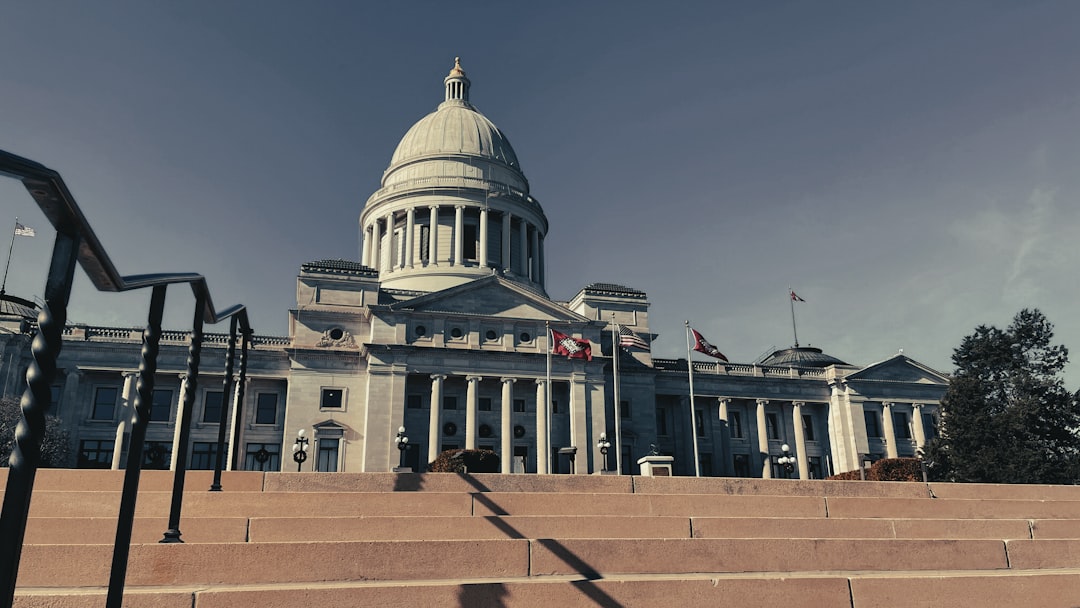In Arkansas, protecting students from sexual abuse is paramount. This comprehensive guide explores essential aspects of student safety in schools across the state. We delve into Arkansas’s laws governing protection, the proactive roles schools play, recognizing potential risks, and reporting mechanisms for staff. Additionally, we outline legal rights for parents and guardians, empowering them to take action if needed. For those seeking expert advice, a school sexual abuse lawyer in Arkansas can provide crucial guidance tailored to local regulations.
Understanding Arkansas Laws on Student Protection

In Arkansas, protecting students from sexual abuse in schools is governed by a series of laws aimed at fostering a safe learning environment. Key legislation includes the Arkansas Sexual Offender Registration Act (ASORA), which mandates the registration and tracking of individuals convicted of sexual offenses, including those involving minors. This helps schools and parents stay informed about potential risks within their communities.
Additionally, Arkansas has strict policies regarding employee background checks and student conduct codes. Schools are required to conduct thorough checks on all staff members and volunteers who have access to students, making it more challenging for perpetrators to hide or evade detection. Furthermore, student conduct policies often include clear guidelines and consequences related to sexual misconduct, empowering students to report such incidents without fear of retaliation. For legal assistance in cases involving school sexual abuse, individuals can consult a dedicated Arkansas school sexual abuse lawyer.
The Role of Schools in Preventing Sexual Abuse

Schools play a pivotal role in safeguarding students from sexual abuse, implementing robust prevention strategies and fostering a culture of safety. Beyond basic education, schools can empower students with knowledge about personal boundaries, consent, and recognizing potential threats. Regular workshops, assemblies, and comprehensive curriculum integration are effective tools to raise awareness among students, empowering them to speak out against any form of inappropriate behavior.
Moreover, schools should ensure transparent reporting mechanisms, encouraging students to report incidents without fear of retaliation. Collaboration with local authorities and dedicated school sexual abuse lawyers in Arkansas can strengthen these efforts. Such partnerships facilitate prompt investigations, ensuring accountability and providing justice for victims while deterring potential perpetrators through severe consequences.
Recognizing Red Flags: Identifying Potential Risks

Recognizing red flags is a critical step in safeguarding students from sexual abuse within Arkansas schools. Potential risks can manifest in various subtle ways, from unusual behavior patterns to explicit comments or inappropriate physical contact. Teachers, administrators, and other staff members are often the first line of defense, as they interact with students on a daily basis. They should be trained to identify warning signs such as sudden changes in student demeanor, frequent requests for privacy, or unusual gifts or money given by parents.
A school sexual abuse lawyer in Arkansas might emphasize that these indicators could suggest a student is experiencing or at risk of exploitation. By being vigilant and proactive, schools can create an environment where students feel comfortable discussing sensitive issues and where potential abusers are identified and addressed through appropriate interventions. Regular training sessions for staff, age-appropriate education for students, and robust reporting protocols are essential components in this preventive measure.
Reporting Mechanisms and Obligations for Staff

In Arkansas, all staff members in schools are required to be aware of and adhere to strict reporting mechanisms regarding potential instances of student sexual abuse. This includes teachers, administrators, coaches, and any other personnel who come into contact with students. The state has established guidelines that mandate immediate reporting to designated authorities when there is reasonable suspicion or knowledge of such abuse. Failure to comply can result in legal repercussions, as a school sexual abuse lawyer in Arkansas would advise. Staff members should be trained to recognize red flags and understand the importance of prompt action to protect vulnerable students.
Reporting procedures should be clearly communicated to all staff, ensuring they know who to contact and what information to provide. This often includes local law enforcement, child protective services, or other relevant agencies. By establishing a culture of transparency and accountability, schools can better safeguard their students from sexual abuse and hold perpetrators accountable.
Legal Recourse: Steps to Take as a Parent or Guardian

If your child has experienced sexual abuse within an Arkansas school, it’s crucial to understand the legal options available. The first step is to report the incident to local law enforcement and the school administration immediately. Documenting everything – from medical records to witness statements – can be invaluable for a subsequent investigation.
Retain a reputable school sexual abuse lawyer in Arkansas as soon as possible. They can guide you through the legal system, ensuring your rights are protected. A skilled attorney will help you pursue justice and compensation for your child’s suffering while also advocating for improved safety measures within the school district to prevent similar incidents from occurring again.






